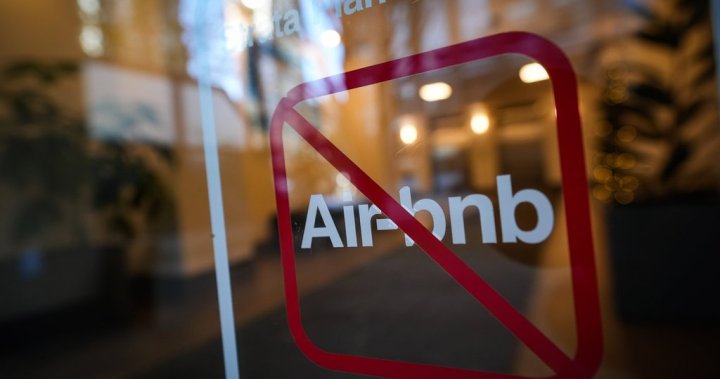As British Columbia hurtles toward its August 1st implementation of sweeping short-term rental regulations, thousands of tourists and hosts find themselves caught in an unprecedented accommodation scramble. With just days remaining before many Airbnb listings potentially disappear from the market, I’ve spent the past week speaking with affected stakeholders across Vancouver Island, the Lower Mainland, and the Interior.
“We’re facing a deluge of cancellation requests and panicked messages,” explains Meredith Chen, who manages seven properties in Tofino and Ucluelet. “Guests booked months ago for summer vacations, and now they’re not sure if they’ll have a place to stay next week.”
The provincial legislation, part of B.C.’s housing strategy introduced last fall, aims to return approximately 16,000 short-term rental units to the long-term housing market. The new rules restrict short-term rentals to a host’s principal residence in most areas, with limited exceptions for specifically zoned tourist accommodations.
The looming deadline has created a chaotic situation for the tourism sector during peak season. Tourism Tofino estimates that nearly 40% of current accommodations in the region operate as short-term rentals, many of which will become non-compliant under the new framework.
Jordan Richardson with the BC Hotel Association tells me the organization supports the government’s overall direction, but questions the timing. “Implementing such significant changes during our busiest season creates unnecessary confusion for visitors. A phased approach might have prevented some of this disruption.”
The provincial housing ministry maintains the August timeline was necessary to address B.C.’s critical housing shortage. According to BC Housing data, rental vacancy rates in tourist hotspots like Victoria and Kelowna have hovered below 1% for much of the past three years.
“Communities need homes for workers, families, and seniors – not just visitors,” Housing Minister Ravi Kahlon said during a press conference in Victoria last week. “These regulations create better balance between tourism and housing needs.”
For tourists with existing reservations, the situation remains frustratingly unclear. While the province has stated that bookings made before June 1st may proceed, enforcement mechanisms are still being developed, leaving travelers uncertain about their accommodations.
Jennifer and Mark Sutherland from Calgary booked a two-week stay in Kelowna for their family vacation starting August 5th. “Our host messaged us saying they’re trying to get proper licensing but can’t guarantee our reservation will be honored,” Jennifer explained during our phone conversation. “We’re in limbo – do we cancel now and try to find alternative accommodations, or take a chance?”
The ripple effects extend beyond just travelers and hosts. In Whistler, local restaurants and tour operators report receiving cancellation inquiries from groups unsure about their upcoming accommodations.
BC’s Tourism Minister Lana Popham acknowledged these challenges during budget estimates debates in May, noting the government is working with destination marketing organizations to help mitigate impacts on the visitor economy.
The regulations have proven particularly complicated in rural communities and resort municipalities where seasonal tourism drives the economy. In Tofino, approximately 30% of the workforce is employed in tourism-related jobs according to municipal economic data.
“The one-size-fits-all approach doesn’t account for communities like ours where tourism is our economic backbone,” says Claire Morwood, who operates a small property management company on Vancouver Island. “We’re not against reasonable regulations, but this implementation timeline has created unnecessary chaos.”
Airbnb has been vocal about its concerns, citing research from the Smart Prosperity Institute suggesting the regulations could result in a significant drop in tourism spending across the province. The platform estimates that hosts in B.C. earned approximately $650 million through their service in 2023, with the average host making about $13,500 annually.
For municipalities, the enforcement challenge looms large. Most local governments are still developing systems to monitor compliance and issue fines. Vancouver, which already had short-term rental regulations in place, reports issuing more than 1,000 violation tickets since implementing its program in 2018.
As the clock ticks toward August 1st, both hosts and guests face difficult decisions. Some property owners are exploring pivoting to longer-term rentals, while others are rushing to secure proper business licenses and zoning approvals where possible.
This situation reflects a broader tension playing out across tourist destinations worldwide – balancing visitor accommodation needs against local housing pressures. Quebec implemented similar regulations earlier this year, while European destinations like Barcelona and Amsterdam have also introduced restrictions on short-term rentals.
For travelers planning B.C. vacations in the coming weeks, tourism industry representatives recommend contacting hosts directly to confirm reservation status, researching alternative accommodation options, and considering travel insurance that covers cancellations.
Whether this regulatory shift will achieve its intended housing goals remains to be seen. What’s certain is that B.C.’s tourism landscape faces significant adjustment during what would normally be its peak season, with both visitors and communities navigating unprecedented uncertainty.






